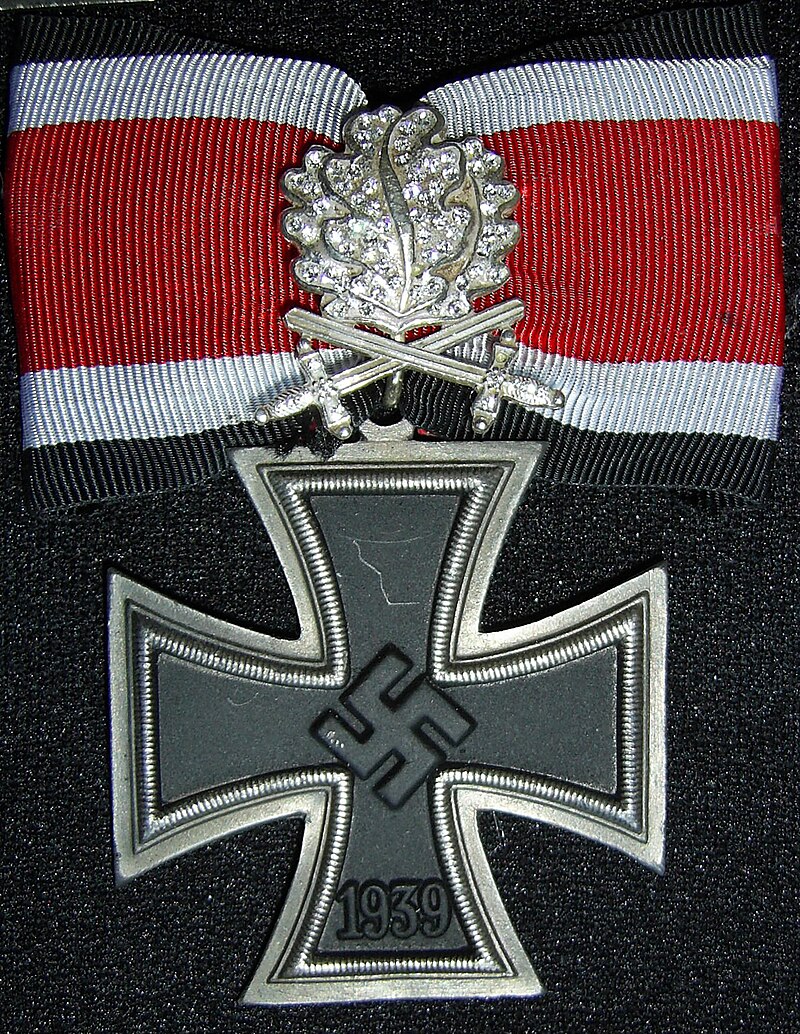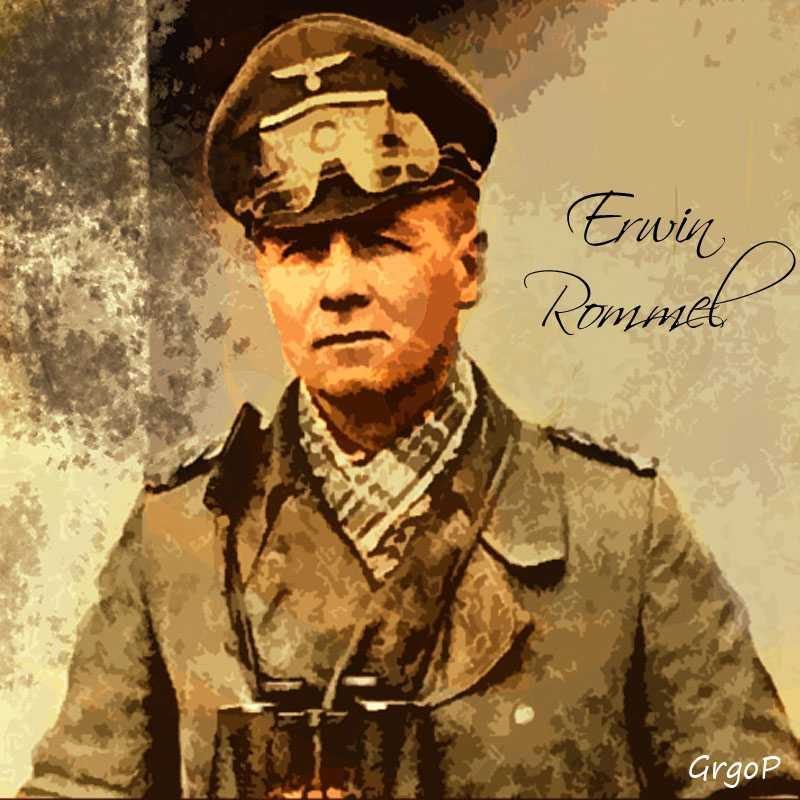
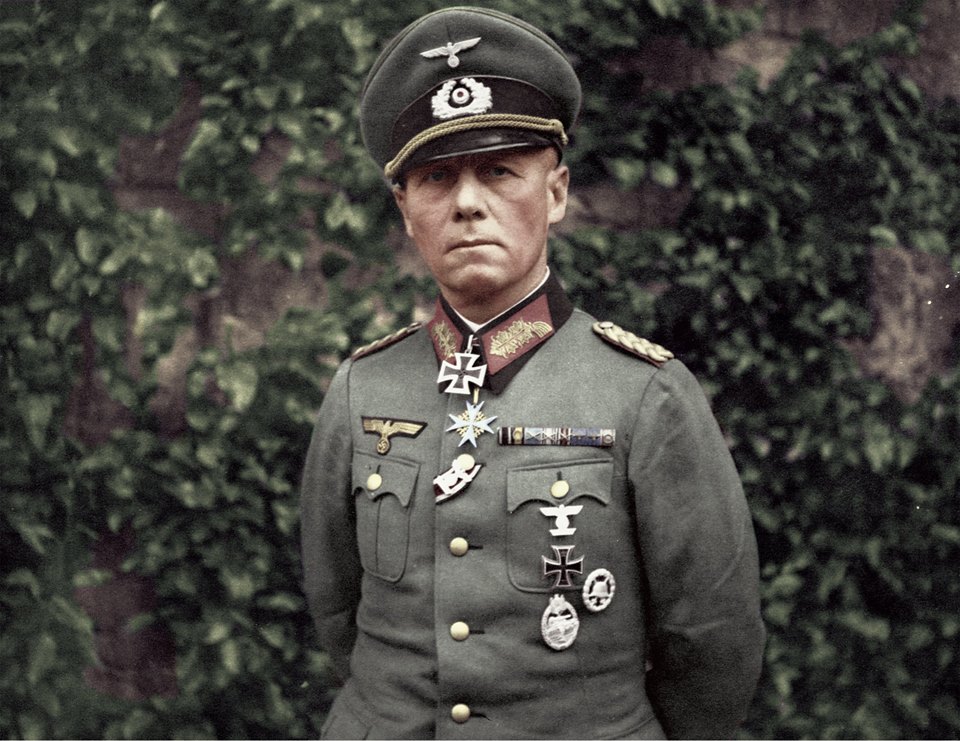
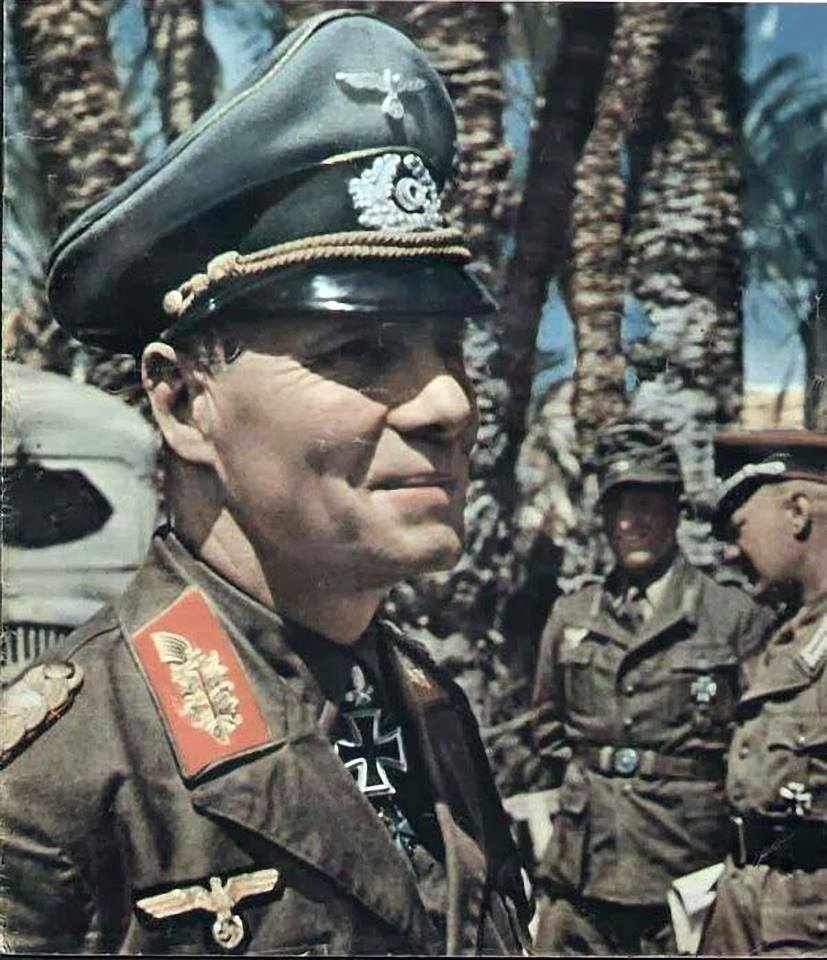
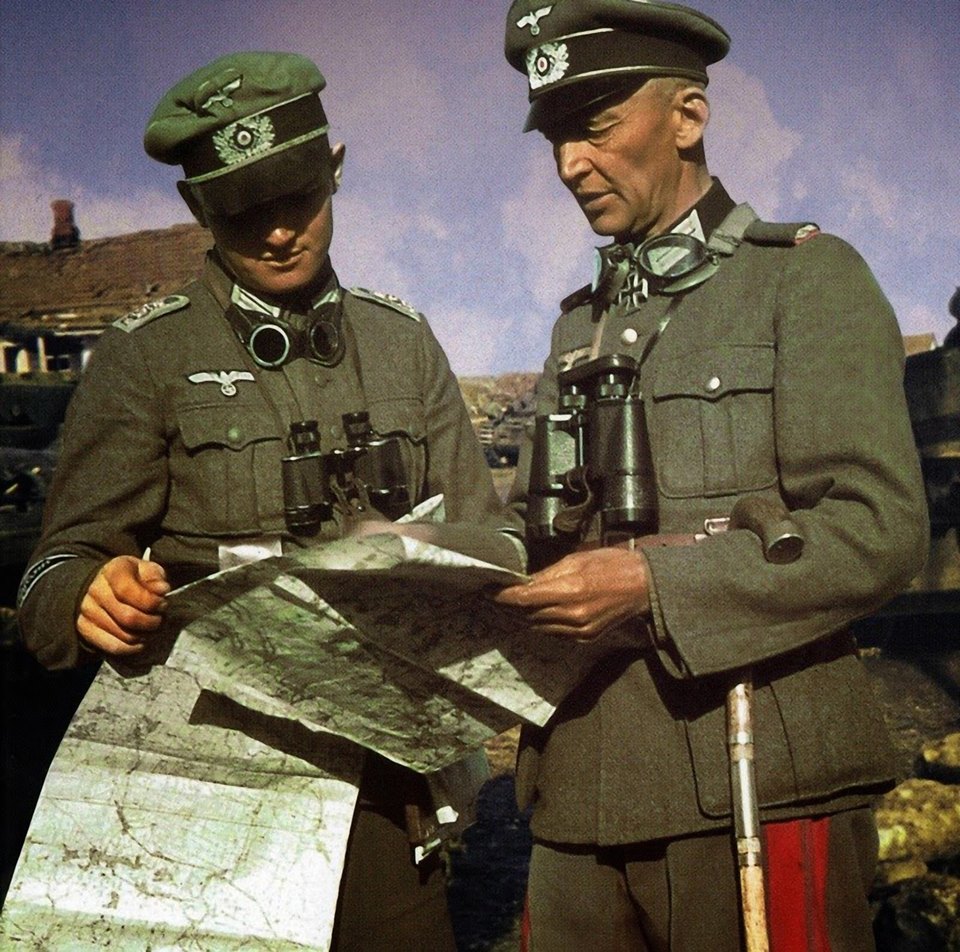
埃爾溫·約翰尼斯·尤根·隆美爾(德語:Erwin Johannes Eugen Rommel,是第二次世界大戰一位著名的德國陸軍元帥,通稱「沙漠之狐」(![]() Wüstenfuchs 說明·資訊),也是德國極少數非貴族出身、未進過參謀學校而晉升至元帥的軍人。英國戰時首相溫斯頓·邱吉爾對隆美爾評價:「我們面對的是一位大膽而熟練的對手,一位偉大的將軍[1]」。
Wüstenfuchs 說明·資訊),也是德國極少數非貴族出身、未進過參謀學校而晉升至元帥的軍人。英國戰時首相溫斯頓·邱吉爾對隆美爾評價:「我們面對的是一位大膽而熟練的對手,一位偉大的將軍[1]」。
在第二次世界大戰入侵法國的行動中,隆美爾擔任了第7裝甲師師長,以迅速的機動攻勢俘虜大批敵軍與物資,使該師獲得「幽靈師」的稱呼。法國戰役後,隆美爾前往北非戰場,以少數的德國師與義大利軍隊向英軍發動攻擊,收回義大利在先前失去的殖民地,戰爭後期,隆美爾被捲入了推翻希特勒的行動中。由於他廣泛的知名度,希特勒讓其選擇可享有「榮譽的私下自殺」,並可保護家人;也可以選擇受軍法審判、全家送至集中營。隆美爾選擇前者,服毒身亡。德國官方偽稱隆美爾因作戰負傷而死,或者是死於心臟病,並為其舉辦國葬。
1942年6月,51歲的隆美爾被擢升為德國陸軍元帥。然而就在這位「納粹戰神」達到了一生中最輝煌頂點的同時,他的內心卻開始發生變化。在這期間,非洲軍團俘獲了許多為盟軍作戰的德國同胞,他們多數是因為納粹高壓迫害,從德國逃出去的政治犯,其中包括猶太人。希特勒命令隆美爾將這些人就地槍決,但是隆美爾卻拒絕執行希特勒下達的處決令。作為一名德軍將領,隆美爾即使在困頓時期仍堅守著人道主義精神。在北非戰場,他配給盟軍俘虜的食品、水、醫療等待遇,和德國士兵是一樣的,充分展現出軍人武德的騎士風範。
1944年7月20日,施陶芬貝格上校發難,企圖刺殺希特勒不成,隆美爾也因忠誠受到質疑,最後被迫自殺身亡,如同南宋岳飛與明朝袁崇煥,可謂「生而為英,死而為靈」,天地同悲。孫立人與隆美爾一樣,也是戰功彪炳且具有軍人武德的一代名將,最後卻被生性多疑的獨裁者懷疑不忠,而受到迫害,限制自由長達32年。曾經率領蘇聯軍隊擊敗納粹德國的元帥朱柯夫,其命運也好不到哪裡去。
英國首相溫斯頓.邱吉爾曾如此評價隆美爾:「儘管我們在戰爭浩劫中相互廝殺,請准許我說,他是一位偉大的將軍。」然而自古名將總是遭無能的獨裁者所害,可悲!儘管如此,他們為國為民而不求自己利益的精神,永遠令人尊敬與懷念,他們後代也永遠以他們為榮。反觀那些自私自利的小人,永遠令人唾棄,後人也羞以為伍,如:杭州西湖岳飛廟前的秦檜夫婦銅像即是如此。
Erwin Rommel was a German general and military theorist. Popularly known as the Desert Fox, he served as field marshal in the Wehrmacht of Nazi Germany during World War II.
Rommel was a highly decorated officer in World War I and was awarded the Pour le Mérite for his actions on the Italian Front. In 1937 he published his classic book on military tactics, Infantry Attacks, drawing on his experiences from World War I. In World War II, he distinguished himself as the commander of the 7th Panzer Division during the 1940 invasion of France. His leadership of German and Italian forces in the North African Campaign established his reputation as one of the most able tank commanders of the war, and earned him the nickname der Wüstenfuchs, "the Desert Fox". Among his British adversaries he earned a strong reputation for chivalry, and the North African campaign has often been called a "war without hate".[2] He later commanded the German forces opposing the Allied cross-channel invasion of Normandy in June 1944.
Rommel supported the Nazi seizure of power and Adolf Hitler, although his attitude towards Nazi ideology and level of knowledge of the regime's crimes against humanity remain a matter of debate among scholars.[3][4][5][6][7] In 1944, Rommel was implicated in the 20 July plot to assassinate Hitler. Due to Rommel's status as a national hero, Hitler desired to eliminate him quietly. Rommel was given a choice between committing suicide, in return for assurances that his reputation would remain intact and that his family would not be persecuted following his death, or facing a trial that would result in his disgrace and execution; he chose the former and committed suicide using a cyanide pill.[8] Rommel was given a state funeral, and it was announced that he had succumbed to his injuries from the strafing of his staff car in Normandy.
Rommel has become a larger-than-life figure in both Allied and Nazi propaganda, and in postwar popular culture, with numerous authors considering him an apolitical, brilliant commander and a victim of the Third Reich although this assessment is contested by other authors as the Rommel myth. Rommel's reputation for conducting a clean war was used in the interest of the West German rearmament and reconciliation between the former enemies – the United Kingdom and the United States on one side and the new Federal Republic of Germany on the other. Several of Rommel's former subordinates, notably his chief of staff Hans Speidel, played key roles in German rearmament and integration into NATO in the postwar era. The German Army's largest military base, the Field Marshal Rommel Barracks, Augustdorf, is named in his honour..
Field Marshal Erwin Rommel was one of German’s most popular generals during World War II, and gained his enemies’ respect with his victories as commander of the Afrika Korps.
